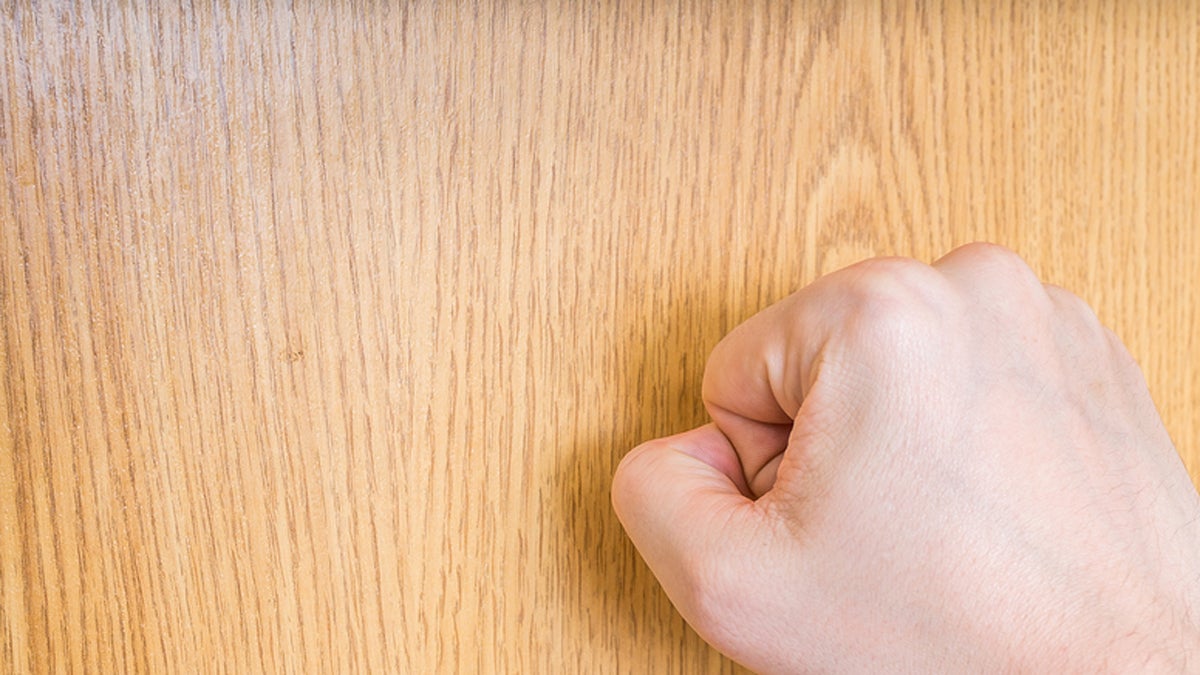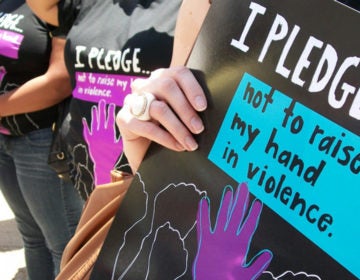Neighbors can help prevent domestic abuse
It was 3 a.m. I sat up in bed, disoriented. A man and a woman were shouting. Then I heard a loud thud, followed by a banging sound, as if furniture was being moved.

(vchal/Big Stock Photo)
I’m a light sleeper. I looked at the clock. It was 3 a.m. I sat up in bed, momentarily disoriented. A man and a woman were shouting. Was it a TV with the volume too high? Then I heard a loud THUD, followed by a BANGING sound, as if furniture was being moved or thrown.
Unsure what I was hearing, I cracked opened my door. The shouting was coming from the apartment of a young, single woman who had recently moved into the unit above mine. Ours is an intimate dwelling, an old mansion that has been subdivided into four apartments. As I slowly climbed the stairs to her door, I tried to discern what I was hearing. A lover’s argument? Rough sex? Or domestic abuse?
I knocked on her door. The shouting subsided. Becky (not her real name) appeared, flushed, out of breath, dressed in a black leotard. “Are you okay?” I asked. Becky nodded, apologized, and quickly closed her door. Relieved but slightly embarrassed, I went back to my apartment and turned on a white noise machine to drown out whatever was happening upstairs. I rationalized that Becky and her friend might’ve been drinking and “horsing around.”
Weeks passed, during which I didn’t see or hear Becky. I chalked up that incident to a “rogue night.” Then, one evening as I turned off Stephen Colbert and climbed into bed at 1:30 a.m., the shouting started again. Becky and a man were going at it hard, their voices escalating with a mean edge. I debated whether to knock on her door again or dial 911. My goal wasn’t to be the Nosey Lady Downstairs but to stop a potentially violent assault.
Ultimately, I did neither. Instead, I texted the landlord who resides on the first floor, advising him that it was happening again. No landlord wants a criminal assault on his property. I turned up my white noise machine but could not sleep. I couldn’t stop thinking about Becky. Why was an attractive, young public school teacher putting herself at risk?
That’s when it came back to me. I hadn’t thought about it in years. When I was in my twenties, I lived with a guy who “accidentally” shoved me during a verbal altercation. We were in the kitchen. My head hit the corner of the stove. My boyfriend’s eyes widened in horror. The fall cut the top of my head. Blood gushed out like a geyser. I was not in pain. I was in shock. My boyfriend rushed me to the ER, apologizing profusely. I did not think about leaving him. He hadn’t hurt me on purpose. It would never happen again. One year later, he punched and kicked me so hard that I finally ended the relationship.
I am tempted to share my experience with Becky in hopes she will learn from it. But I am not that naïve. There is an addictive component to abusive relationships. Telling Becky to keep her distance from potentially violent men is like telling a heroin addict to find religion.
According to a 2012 report by the Philadelphia Domestic Violence Support Agency, nearly 2,000 visits to the ER each year are made by women assaulted by a spouse, boyfriend or ex. In 2012, over 100,000 domestic violence police reports were filed here and over 300 homicides were the result of domestic abuse. That’s almost one woman murdered per day by someone she knows in the City of Brotherly Love. (Yes, men are also victims of domestic violence. But according to the Philadelphia Police Department, the “vast number” of victims are women.)
March is National Women’s History Month. There are many issues that demand our attention. A commander in chief who spouts misogyny as a virtue. The defunding of Planned Parenthood; attempted dismantling of the Affordable Care Act, Medicare, and Medicaid; to say nothing of the wrecking ball aimed at the Department of Education, NIH, EPA and the NEA. These are all women’s issues.
However, none of these issues takes precedence over domestic violence. The National Coalition Against Domestic Violence estimates that a woman is assaulted or beaten every 9 seconds. The most vulnerable are women between 18 and 24. The cost of domestic violence exceeds $8.3 billion annually. If you know of someone who is at risk, the Philadelphia Domestic Abuse Hotline encourages you to call 911 first, then contact their Hotline at 1-866-723-3014.
Next time, I will know what to do.
WHYY is your source for fact-based, in-depth journalism and information. As a nonprofit organization, we rely on financial support from readers like you. Please give today.



